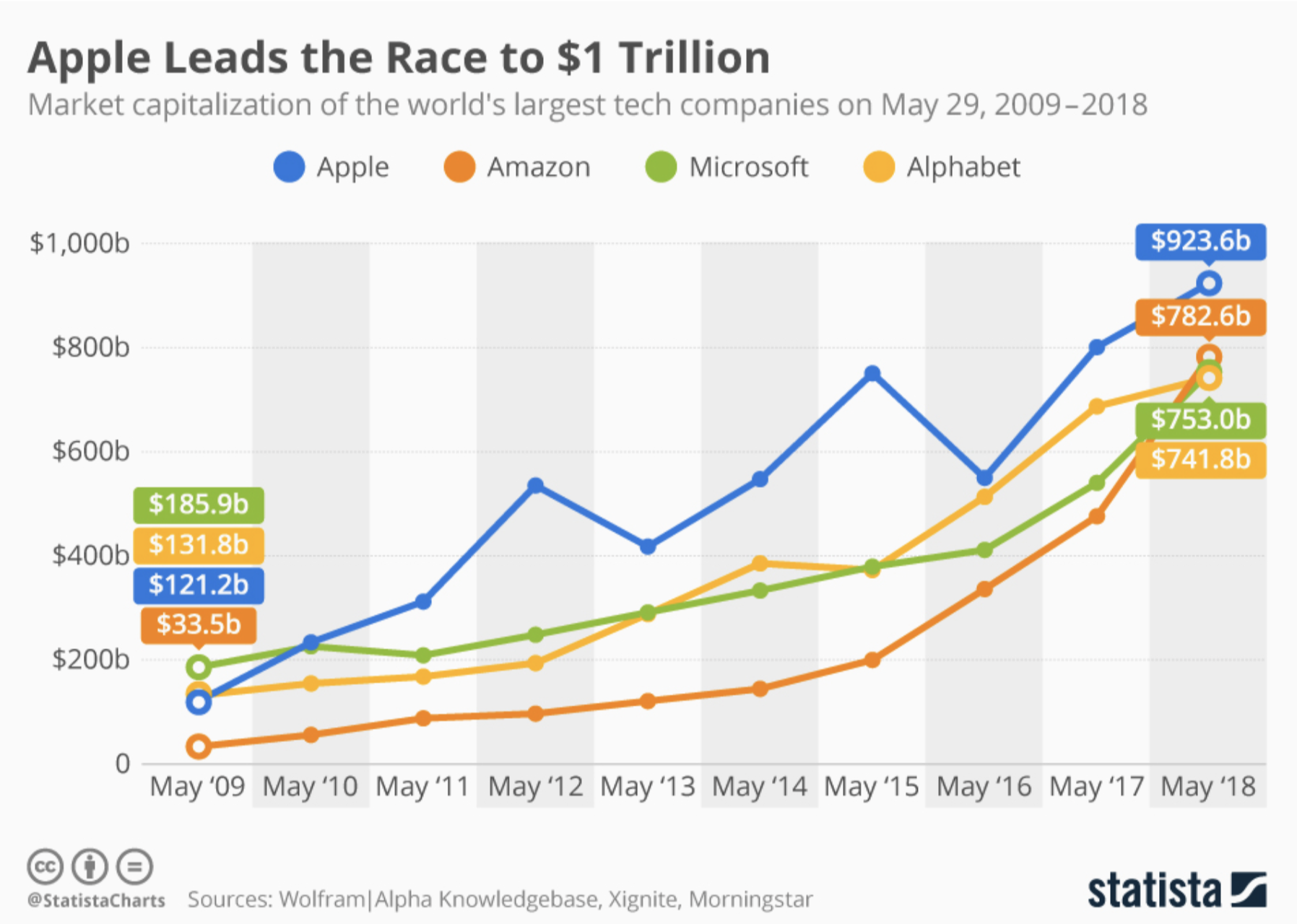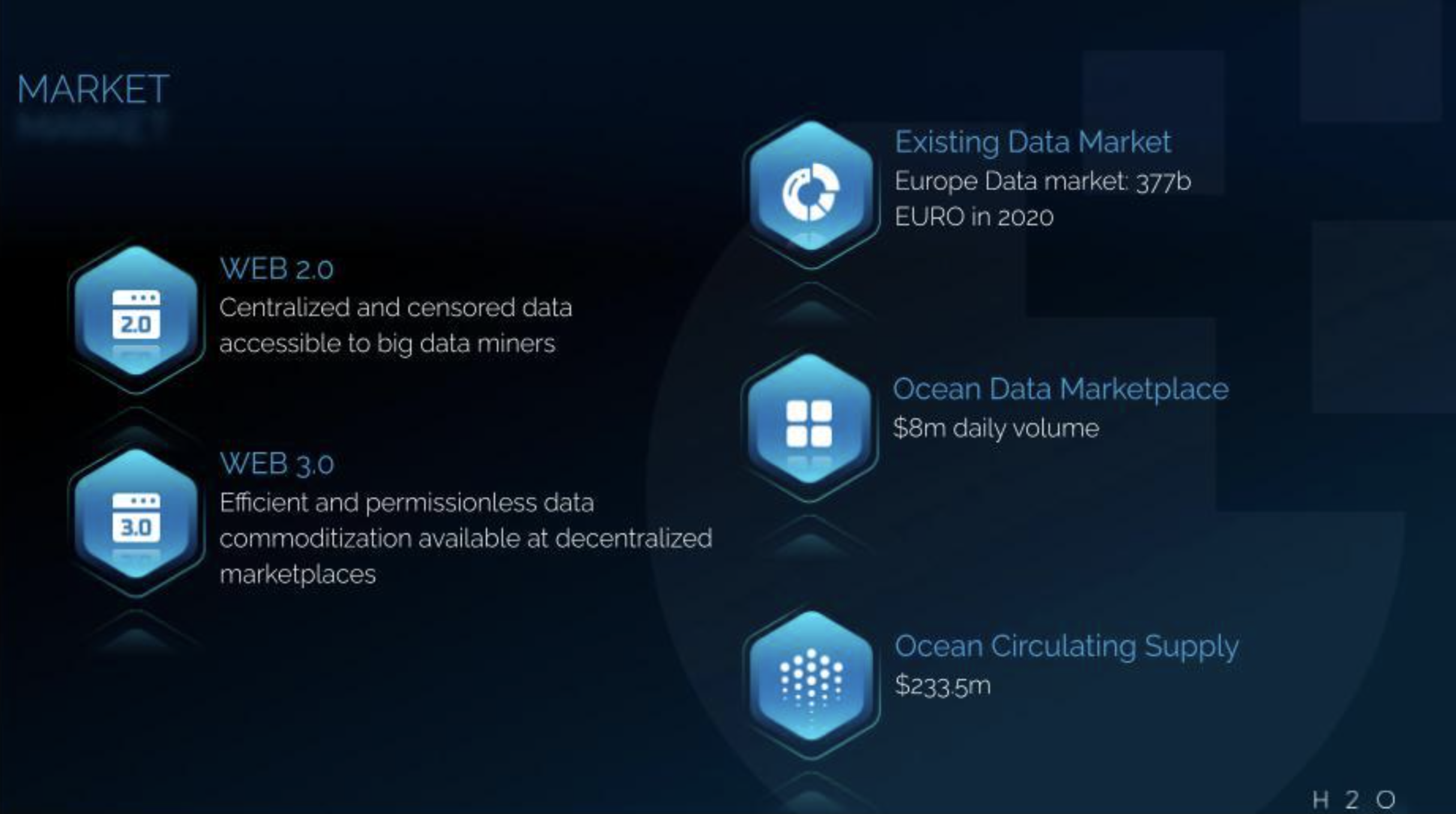Introduction
Data has taken over the world. In the past twenty years, we've seen the internet grow from a niche subset of technology into a sector that makes up a significant chunk of the world's economic activity. In 2018, the companies representing the Nasdaq 100 had a total market capitalization of around $11 trillion. Of these 100 innovators in the tech sector, giants like Alphabet, Meta, Apple, and Amazon hold valuations close to or greater than that elusive 13 figure mark. Data has put a stranglehold on the global economy and doesn't appear to be letting go anytime soon.
These massive corporations made their fortunes and built their empires off the backs of data. It wasn't until leaders like Larry Page, Sergey Brin, and Mark Zuckerberg came around that the world caught on to just how powerful (and lucrative) data can be. Until now, few ways allowed the average individual to capitalize on data.

Unlocking the Value of Data
Ocean is a decentralized data exchange protocol, the first of its kind built with blockchain technology. Users can freely exchange and sell valuable data, all on-chain. By registering each data set as its own unique datatoken, Ocean has monetized the flow of quality, actionable data to DeFi. Never has the exchange of information been so streamlined and readily available, opening the window into a world of "data legos" for developers and data users to build off.
DeFi is focused on the idea of interoperability, the connection between various parts that come together to create an entire financial infrastructure. The free flow of data can enable innovation in burgeoning crypto sectors like it's never seen before - allow me to show you how.
The Ocean Market serves as an intersection between DeFi and data as a valuable commodity. Users interact with the Ocean Market by purchasing the data available with datatokens (OCEAN) - the simplest form of a peer-to-peer exchange you can find, yet one that is ultimately unique in crypto's current landscape. By converting a data asset into a datatoken, Ocean has expanded the definition of what it means to exchange a currency for a good.
While corporations like Google or Facebook may hold vast amounts of user data behind closed castle walls, Ocean Protocol opens up the lucrative world of data to anyone willing to pay for it. Corporations may have been able to profit off their users in web2, but those shaping the future of web3 have made it their goal to ensure that users are no longer products for monopolistic mega-corporations.

Blockchain technology enables the monetization of almost anything. If you missed it, the world has seen dog coins and NFT rocks appreciate 1000x; why can't data sell for the fair price it deserves?
Users can navigate to the Ocean Market and purchase a data set that displays the top-selling products on Amazon for any year or dives into a report that outlines the distributions of land in the metaverse - the possibilities are almost endless.
The Mariana Trench of Data
There is a growing amount of data being put out into the world. Every google search, every UberEats order, every interaction on Twitter - this is data that can be used. While data is being put to work by just about every major corporation, there is still so much that can be done with data. We haven't even scratched the surface.
Data is powering everything from artificial intelligence to drones that deliver you packages. Data is the driver that enables most of the internet to run at the scale it does - without data, we'd not understand how individuals interact with the internet - the same applies to blockchains. Here's an example.
Let's say you're scouring Etherscan, tracking wallets, and trying to scope out the moves of whales. This process is arduous, as looking at a series of hexadecimal strings 24/7 isn't enjoyable and can be tricky to navigate. If you created an algorithm that could quickly parse through data and find notable transactions or wallets but didn't have the incentive to profit from this yourself, wouldn't you want to sell this?
With Ocean, this is possible.

Because data represents such a massive part of our lives, it's essential to bring this innovation to crypto to transition from shadow data to open data economies. The core tenet of crypto is decentralization - removing individuals from overreaching institutions and power structures that prey on their ignorance. By evening the playing field and enabling access to vast amounts of data, Ocean prioritizes the democracy of data through their unique approach.
Narratives control the cryptocurrency market. We can view this from the lens of Bitcoin as a store of value, Ether as the de facto currency of the internet, or any other bullish theory the community spins up. We've recently seen DeFi adopt governance and vote escrow mechanisms as a primary narrative to drive attention to the space. NFTs are touted as a fundamental change for practically anything, whether it's a football ticket or even a dystopian version of a time card. Heck, the world has even come to terms with the bold decision of Mark Zuckerberg to change his conglomerate's name to Meta. It's about time we view the democratization of data as a driving thesis for what's to come.
If you're already familiar with a lot of the hope that gets displayed around the crypto community, I'll spare you of the dramatics. It seems obvious enough that cryptocurrencies and blockchain tech will change the world one day - but what can this look like?
We've already seen that the world is becoming increasingly digital, whether this is daily zoom calls for work and school, "the metaverse," or the vast amounts of time spent in front of a screen. Regardless, it's clear that crypto has a place in this transition from the old to the new. Could this mean a society of independent thinkers, analysts and builders earning a living entirely on-chain? Could this manifest in a society similar to 'Snow Crash'? It's anyone's guess.
Whether you use data yourself, it's vital to understand its implications in all of our data lives. Ocean Protocol is standing at the forefront of a massive total addressable market, almost entirely in a category of its own. You'd have been a fool fading big data and the internet of things over the past two decades - it would make sense to support the financialization of data for the everyman. Even if you aren't a fan of data and don't work in a field relevant to it, the possibilities that Ocean brings to the table are extremely valuable and more prominent than what we might see at the moment. When they're first created, we rarely notice significant innovations, often overlooked because of their lofty aspirations. These ideas can take a long time to get off the ground, but once the ball starts rolling, the flywheel begins to spin, and Ocean pushes the ball as hard as anyone.